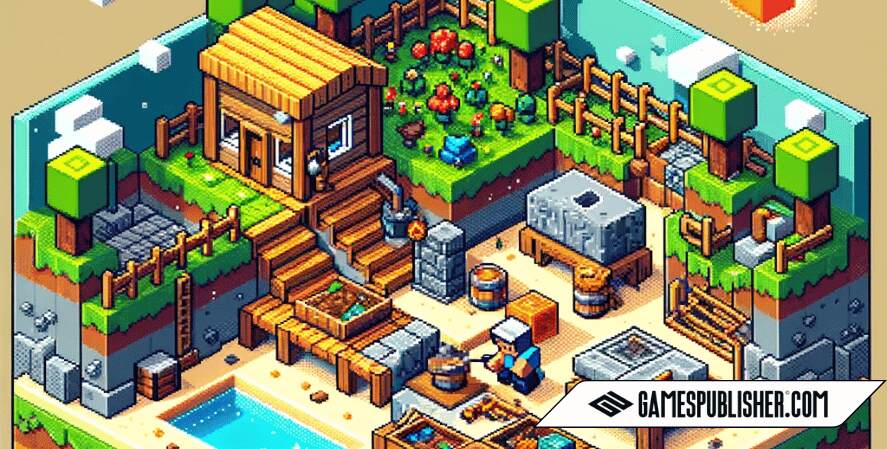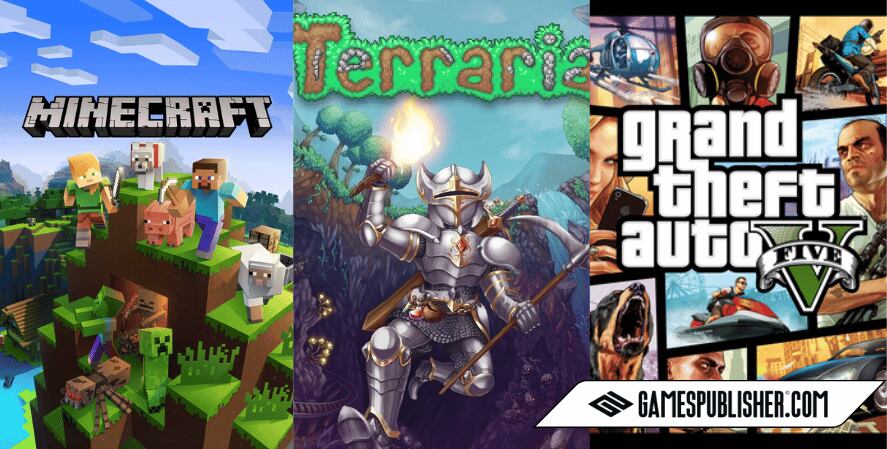Sandbox games stand out in the gaming world for their flexibility and the extensive control they offer players over their gaming environments. These games are characterized by:
- Open-ended gameplay: Players are free to set their own goals and explore the world at will.
- Creative freedom: The game provides tools and the player brings their imagination, crafting unique experiences and creations.
The evolution of sandbox games has been marked by influential titles like “Minecraft” and “Grand Theft Auto,” which not only define the genre but also expand the boundaries of what video games can be.
The Appeal of Sandbox Games
Freedom and Creativity
Sandbox games remove traditional gameplay constraints, allowing players to:
- Create and modify the world around them.
- Innovate within the game space to craft new experiences and challenges.
Endless Possibilities
Key aspects include:
- Choice-driven narratives: Players may opt to follow the game’s quests or create their own adventures.
- Varied gameplay: Each playthrough can be a unique experience based on the choices and creativity of the player.
Community and Collaboration
Features that promote community within sandbox games:
- Shared projects: Players can collaborate on complex constructions or gameplay scenarios.
- Community-driven content: Many games support player-created content, enriching the game environment and offering new challenges.
Key Features of Sandbox Games
World Building Tools

Players have access to:
- Diverse building tools: From simple blocks to sophisticated simulation tools, players can create varied and complex environments.
- Customization options: Extensive customization tools allow for personalized gameplay and unique world features.
Game Mechanics
Common mechanics in sandbox games include:
- Crafting and building: Essential for altering the game world or creating new items.
- Resource management: Players manage resources to build, survive, or craft.
- Simulation elements: Many sandbox games include systems that simulate real-world physics or societies.
Modding and User-Generated Content
Benefits of modding:
- Extended gameplay: Mods can add new features or challenges, extending the life of the game.
- Community contributions: Players contribute their own content, which can become integral to the game’s ecosystem.
Popular Sandbox Games and Their Impact

Case Studies
Examples of successful sandbox games include:
- Minecraft: A leader in world-building and community engagement.
- Terraria: Known for its depth in crafting and exploration.
- Grand Theft Auto V: A blend of narrative freedom and expansive world design.
Innovations Brought by Sandbox Games
Sandbox games have introduced:
- Advanced world-building tools that allow for the creation of vast, dynamic environments.
- AI enhancements that make non-player characters respond more realistically to player actions.
Challenges in Designing Sandbox Games
Balancing Freedom with Structure
Design considerations include:
- Engaging yet open-ended objectives to guide players without limiting their creativity.
- Scalable challenges that adapt to the player’s own pace and style of gameplay.
Technical Challenges
Technical aspects involve:
- Optimizing performance for large, detailed game worlds.
- Debugging complex interactions within a highly interactive environment.
Ensuring Longevity
Strategies for maintaining player interest:
- Regular updates with new content or features.
- Active community support to encourage ongoing player engagement.
Future of Sandbox Games

Trends and Future Directions
Potential future developments:
- Integration of VR: Making game worlds more immersive and interactive.
- AI-driven dynamics: Creating smarter game environments that react organically to player actions.
The Role of Sandbox Games in Education and Other Fields
Applications extend beyond entertainment, including:
- Educational tools: Using game mechanics to teach complex subjects like physics or architecture.
- Training simulations: Employing game environments for practical training scenarios in various industries.
Conclusion
Sandbox games revolutionize how we interact with digital worlds, offering unparalleled creativity and freedom. They challenge us to think, create, and collaborate in ways that traditional games cannot, making them a cornerstone of modern gaming culture.
Loading survey...

